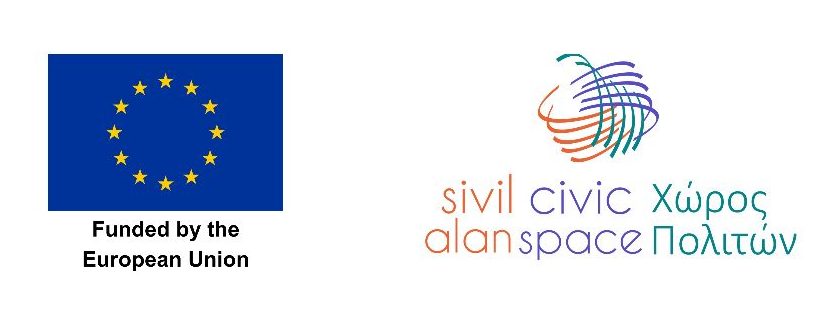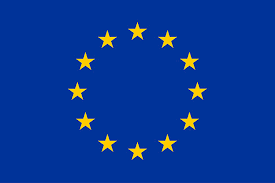On the 14th of April, "Statistics Institute", civil society organisations (CSOs), including rights based CSOs and trade unions discussed social statistics needs in an online meeting. More than 30 people attended the event organised as part of the support provided for the Turkish Cypriot community through the European Commission’s Technical Assistance and Information Exchange Instrument (TAIEX) . Civic Space and Cyprus Dialogue Forum were also present in the meeting.
The civil society organisations have shared their challenges and expectations about data collection. They stressed that there is a lack of recent, accurate and reliable data in general and on social issues in the northern part of Cyprus. They further insisted that they need raw data that can be compared to similar data in other countries and/or previous collection years. This lack of data limits civil society’s activity planning, monitoring, and advocacy work. Most CSOs try to fill in the gap by conducting their own research and surveys. They share the collected information with relevant institutions and advocate for changes. The main areas on which challenges were raised were the following:
- The importance of independence of the statistics institute – stakeholders raised this as an important issue as the non-independence of the institute, the appointment of its management, as well as where it sits in the administrative structure determined by the relevant law puts into question the independence of the data/statistics it produces and is considered politically biased. In many cases, stakeholders note that published data (e.g. inflation rate) does not correspond to market data and is questioned whether its calculation is based on objective data. The institute should be independent and its management should be selected upon merit.
- The format in which data is shared – stakeholders raised this as an important component. Data cannot only be shared in pdf format, but needs to be shared in excel to enable civil society actors to work with data
- The methodology used to be compatible with EU standards and comparable internationally. A suggestion was made to follow the EU Household Labour Survey format and schedule as well as its ad-hoc modules.
- Timing in which data is made available and accessible – stakeholders identified that as data is critical in designing and proposing policy recommendations, the timing in which data is made available is critical. Data is key as it is what civil society actors base their policy recommendations on. When data is published after decisions are taken, civil society actors do not have the opportunity to have any meaningful role in the shaping of policy. Key data needs to be made available before decisions are to be taken.
- Need to have access to data including raw data on the following topics (non-exhaustive list):
- Economy, wages and employment:disaggregated data is needed on poverty, poverty threshold, household consumption, minimum wage, employment, unemployment by sectors. Among these:
- Emphasis was placed on the importance of making available the data on poverty threshold as this is one of the key data indicators on which the determination of the minimum wage is based on according to the relevant law.
- Stakeholders noted that this is critical to be made publicly available. Additionally, stakeholders noted that data needs to be made available on the inflation rate of the general basket of goods (on which the minimum wage is the calculated) but importantly on the specific inflation rate of food products in the basket of goods as this is what directly impacts workers and those specifically working on minimum wage.
- Statistics on occupational accidents critical in the assurance of occupational health and safety which under the current conditions lacks massively in inspection and monitoring needs to be collected and made available. Stakeholders noted that due to the lack of data from the statistics institute they have to rely in many cases on alternative sources of information. When these are used by social actors they are then questioned by the relevant bodies. Stakeholders also note that occupational accidents are not always recorded as such, to ensure that number remain low. This needs to be addressed and clear guidelines need to be established.
- Stakeholders also identify that in the determination of the minimum wage the household budget survey is critical. Civil society actors such as trade unions cannot formulate any policy recommendation on wages when the gap between the surveys (and any meaningful wage data) is 7 years (the last survey was carried out in 2015). The household budget survey needs to be done every year.
- Health: disaggregated data is needed on diseases such as diabetes, cancer, and rare diseases and also on patient rights. People approved to be treated abroad and how much money is spent is an important information as well. Additionally, data on international students' lack of access to health care and the number of foreigners deported because of their HIV status.
- Human trafficking: disaggregated data regarding the number of investigations, prosecutions, conviction rates, number of people receiving support from social welfare, potential victims such as irregular migrants (students without attendance, workers not renewing their permits), number of nightclubs operating, number of women working in the nightclubs, etc.
- Refugees:disaggregated data regarding the number of persons denied entry to territory, number of persons deported, number of persons entered irregularly to the territory, number of prosecutions and convictions for irregular entry, number of prosecutions and convictions for human smuggling.
- Democratic rights, freedom of association: number of associations, the field of their works, impact and contribution of civil society, voluntarism, etc.
- International students:Desperation is widespread amongst young people in general. Accurate data is needed to see the number of students enrolled in the universities every semester, number of students dropping out of school for financial reasons, data for number of students who graduate and do not return to their countries, data on mental health, drug abuse and satisfaction with life in the northern part of Cyprus.
- LGBTI rights:employment, discrimination, access to social welfare, violence, healthcare, etc.
- Wildlife and environment:Spatiotemporal distribution of flora/fauna and environmental indicators such as Dissolved Oxygen, total Phosphorus and Nitrogen, pH, pollutants, pesticide residues, carbon emissions, etc.
- Intersectionality in data collection: Intersectionality is essential in data collection. Data should always be disaggregated by gender, age, origin, physical ability, professional status, etc. For example, healthcare data should also investigate international students' access. Gender violence should consider the
- Economy, wages and employment:disaggregated data is needed on poverty, poverty threshold, household consumption, minimum wage, employment, unemployment by sectors. Among these:
All this data needs to be collected safely, ensuring that respondents are not targeted personally, or the results will not lead to biased or discriminatory policies.
In that context, CSOs discussed how the Statistic Institute, with the support of the European Union through the TAIEX instrument could improve the availability and dissemination of data and respond to the needs for social and socio-economic statistics. Civil society organizations, trade unions, and the Statistics Institute agreed to cooperate and exchange data and information. TAIEX expert shared the experience from the Statistic Department in Italy.





